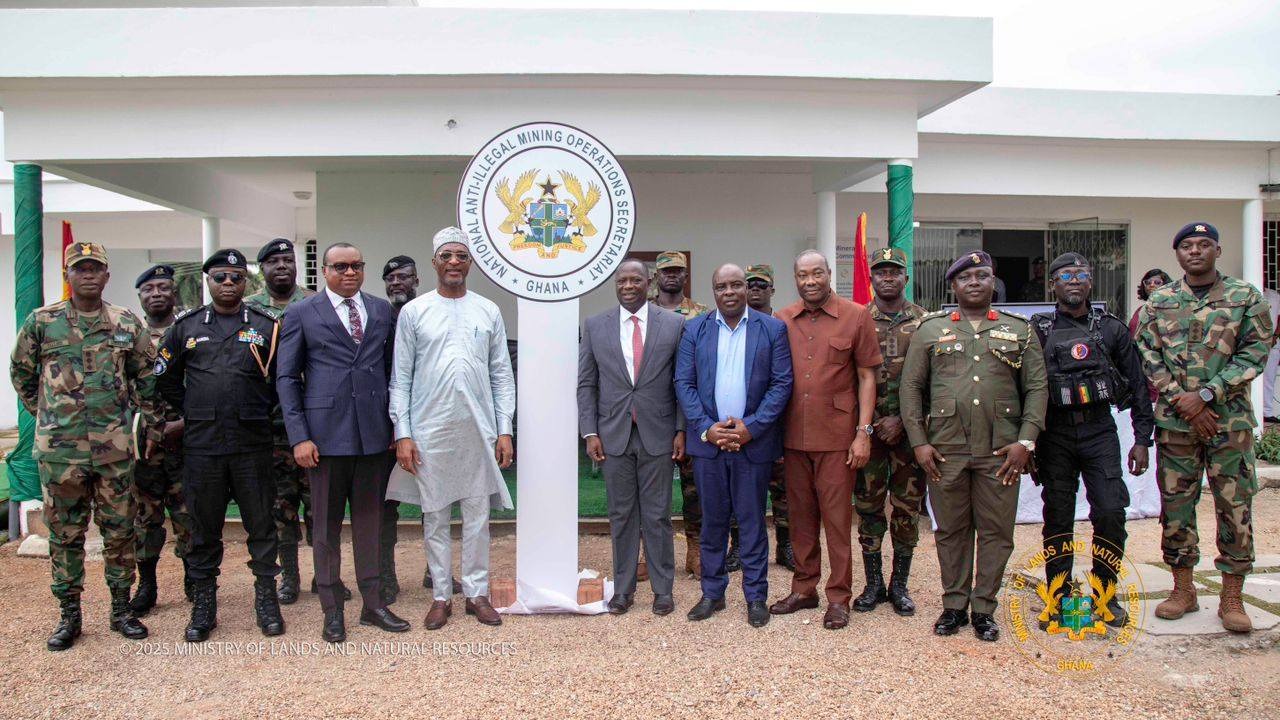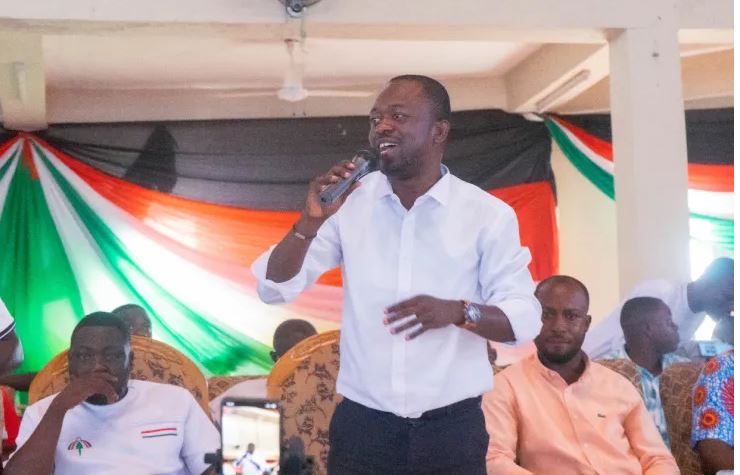Ghana’s Government has officially launched the National Anti-Illegal Mining Secretariat (NAIMOS), a central coordinating body aimed at intensifying the fight against galamsey by fostering collaboration among enforcement agencies, traditional authorities, and district officials.
Lands and Natural Resources Minister Emmanuel Armah Kofi Buah announced that the Secretariat will oversee coordinated anti-galamsey efforts across the country, directly supporting regional task forces such as the Eastern Regional Security Council’s nine-member unit established in March 2025.
The initiative forms part of the government’s broader five-pillar strategy to address illegal mining. It focuses on reclaiming degraded lands, providing alternative livelihoods, strengthening law enforcement, reforming the mining licensing system, and boosting public awareness and education on environmental protection.
Since its inception, the initiative has already yielded results. A joint operation in the Offin Shelter Belt Reserve led to the seizure of 12 excavators, the arrest of five suspects, including a Chinese national and the dismantling of an illegal mining camp.
Nationwide crackdowns have so far resulted in the confiscation of 56 excavators and 18 arrests across multiple regions.
The initiative adopts a decentralised, community-led approach that empowers local authorities, chiefs and MMDCEs to play active roles in granting mining permits and enforcing regulations at the district level.
This aligns with President Mahama’s push for a “bottom-up” strategy and draws on recent regional successes, such as the Eastern Regional task force’s operations and the Eastern Minister’s seizure of 10 excavators in April 2025.
The establishment of NAIMOS is significant for improving coordination among enforcement bodies such as the military, forestry services, customs, and district authorities.
Early operations have already shown results through equipment seizures and arrests, signaling increased effectiveness.
Beyond enforcement, the initiative supports ecosystem protection through land reclamation and public awareness campaigns.
Crucially, its community-driven approach empowering local leaders could strengthen accountability and foster collective responsibility in curbing illegal mining.
Next steps for the initiative include monitoring enforcement raids in remaining illegal mining hotspots such as the Subri, Afao Hills, and Jimira forest reserves.
Policy watchers will also track the rollout of decentralised permit systems and reforms to the licensing process.
Equally important will be evaluating the social impactparticularly shifts in unemployment rates and the effectiveness of alternative livelihood programmes introduced in mining-affected communities.
By: J.W Quarm





